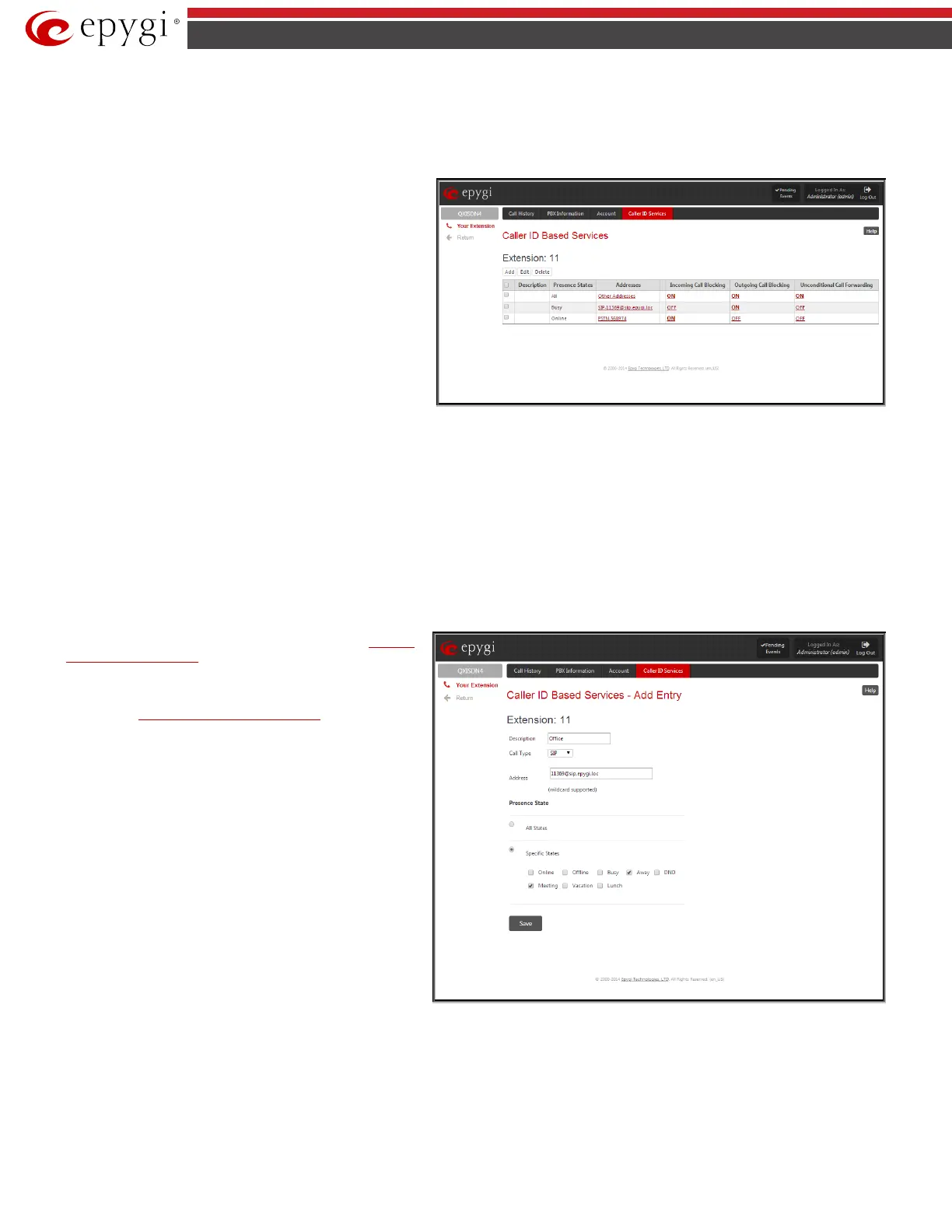QX5
QXFXO4/QXISDN4/QXE1T1/QXFXS24; (SW Version 6.0.x) 131
QXFXO4/QXISDN4/QXE1T1/QXFXS24 Manual II: Administrator’s Guide
Caller ID Based Services
The Caller ID Based Services page provides a possibility to configure a set of telephony settings from the same page. Incoming and Outgoing Call Blocking
Settings and Unconditional Call Forwarding services are configurable from this page.
Caller ID Based Services
page contains a table where all
caller or called destinations and the states (ON or OFF) of caller
ID based services for each of them are listed. Caller or called
destinations are used to configure caller ID based services based
on them. The column headings of the table are designed as links.
By clicking on the column heading the table will be sorted by the
selected column. Upon sorting (ascending or descending) arrows
will be displayed close to the column heading.
The table also has Any Address entry that is undeletable. It is
used to configure caller ID based services for all addressed. When
adding a new caller address Any Address is changed to Other
Addresses. Now there could be different configurations for the
specified addresses and for all others.
Fig.II- 212: Caller ID Based Services page
Add opens the Caller ID Based Services - Add Entry page where a new address and presence states can be defined Page consists of the following
components:
The Description text field requires optional information about the address owner.
Call Type lists the available call types:
• PBX - local QX extensions and Auto Attendant
• SIP – caller or called destinations reached through a SIP server
• PSTN – caller or called destination dialed from or to PSTN
• Auto – used for undefined call types. In this case, for incoming calls from specific address, configuration of caller ID based services will apply either
to PBX, SIP or PSTN callers. For outgoing calls, the called destination will be reached through Routing.
Addresses
text field requires a SIP address (see chapter Entering
SIP Addresses Correctly), an extension or a PSTN number, for
whom supplementary services should be applied. If the address
already exists in the table, selecting Save will give the error
“Caller address already exists”. Wildcard is allowed in this field
(see chapter
Entering SIP Addresses Correctly). Entering “*” as
PBX or PSTN addresses will apply configuration of
supplementary services to all extensions or PSTN users.
The extension number should be inserted in the Addresses text
field for the PBX call type. The PSTN number length depends on
the area code and phone number.
The Presence State radio buttons allows to set the Presence
State of an extension.
• All States selection is used to select all states for an
extension.
• Specific States selection contains a group of radio buttons
that are used to select the state of the corresponding
extension:
o Online
o Offline
o Busy
o Away
o DND
o Meeting
o Vacation
o
Fig.II- 213: Caller ID Based Services – Add Entry page
